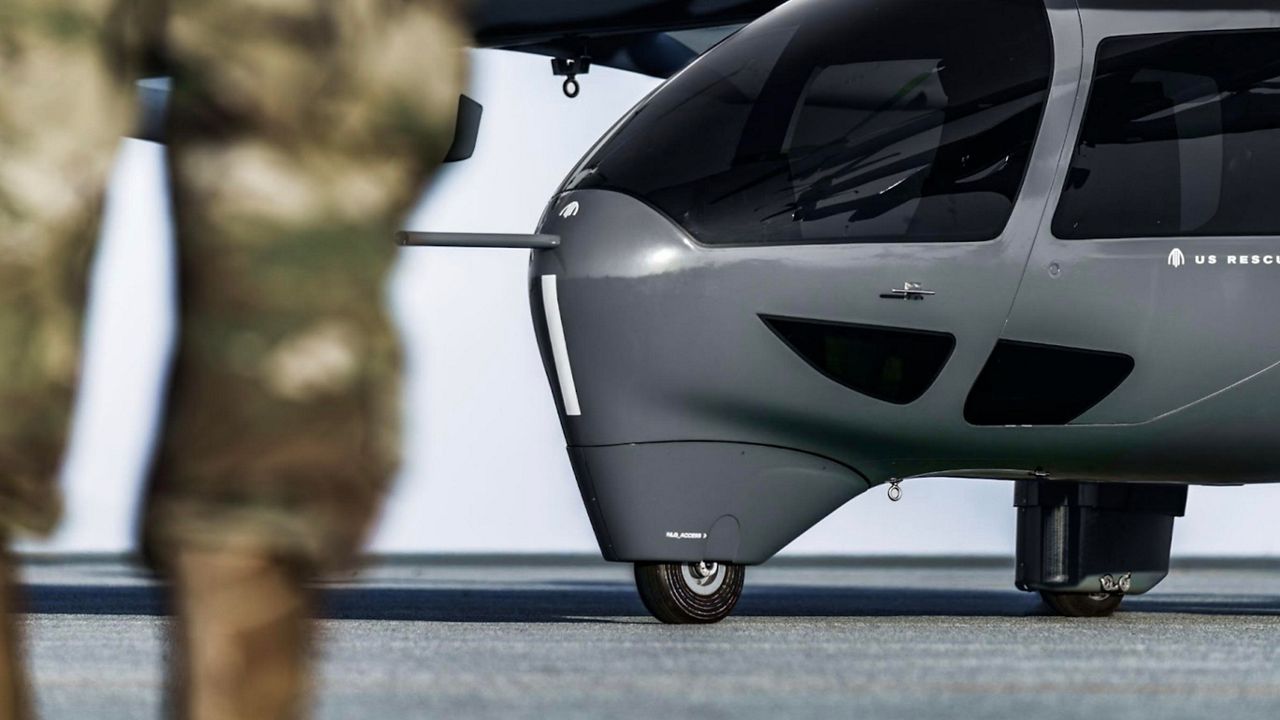The U.S. Air Force will purchase as many as six aircraft from the Santa Clara, Calif., startup Archer Aviation, the company announced this week.
The maker of electric vertical takeoff and landing, or eVTOL, aircraft said it will deliver its Midnight vehicle and provide pilot training to the Air Force as part of a $142 million deal.
“It is our mission to ensure the U.S. continues to lead the world in developing and deploying emerging aerospace technology,” Lt. Col. Tom Meagher, who leads the Air Force's AFWERX Agility Prime program, said in a statement announcing the deal. “EVTOL aircraft represent the cusp of the third revolution in aerospace, and these aircraft and their descendants will drive advances in capabilities and efficiency.”
The Midnight can take off and land without a runway, making it more agile than many military aircraft. Unlike helicopters, which are noisy, high maintenance and run on fossil fuel, the Midnight is also quieter and cheaper because it is powered with batteries. Archer says the five-seat aircraft can carry a payload of about 1,000 pounds.
Archer first partnered with the U.S. Department of Defense in 2021 and has worked on various projects through an Air Force Research Laboratory program that fosters military collaboration with private technology startups. In a statement, Archer said its Midnight aircraft could be used to transport personnel and provide logistical support and rescue operations for the Air Force and could be used to perform other duties with the Defense Department.
The Defense Department told Spectrum News that the Archer contract will allow it to “iteratively conduct government operational experimentation on military installations for government-owned, government-operated flight operations to execute and experiment with key missions or mission elements to substantiate government use cases.”
The work will be conducted in San Jose and is expected to be completed by July 31, 2028, the DOD said.
Archer Aviation is one of about 350 companies currently working to develop eVTOL technology. It is one of six startups that have contracts with the Air Force.
Joby, based in Santa Cruz, Calif., has a deal to produce up to nine of its eVTOLs for the Air Force and other government partners. The first two production aircraft will be delivered to Edwards Air Force base in California by early 2024, the DOD told Spectrum News.
Air Force pilots have flown electric aircraft from Beta Technologies in South Burlington, Vt., and are also conducting remotely piloted flight tests with Moog, based in Hawthorne, Calif.
“This historic agreement reflects the steadfast commitment by our Armed Forces to embrace the cutting-edge technology our eVTOL aircraft offer,” Archer Founder and Chief Executive Adam Goldstein said in a statement. “It’s clear that the development and commercialization of eVTOL technology continues to remain a national priority.”
Archer has only built one Midnight aircraft so far and hasn’t yet flown it, Vertical Flight Society Strategy Director Mike Hirschberg told Spectrum News. Working with the military allows the company to advance its technology while the Federal Aviation Administration finalizes regulations for the nascent eVTOL industry, he said.
EVTOLs won’t be approved for commercial flights, such as urban air taxis, until at least the end of 2024.
“The main thing with a new aircraft is you want to be able to fly it a lot and find all the bugs, so having a government facility that didn’t develop it test it with more variety in the types of flights, the people flying it and locations are all helpful to make sure the final product for the public is safe beyond question,” Hirschberg said.
The military wants the technology to succeed, he added, because it provides multiple benefits. Being electric, there’s no need to get fuel across the battlefield. Power can be locally generated with solar, wind or hydrogen fuel cells.
They are also quiet, which “will have great military advantages,” Hirschberg said. “You can sneak in in darkness and put people in or take people out.”






